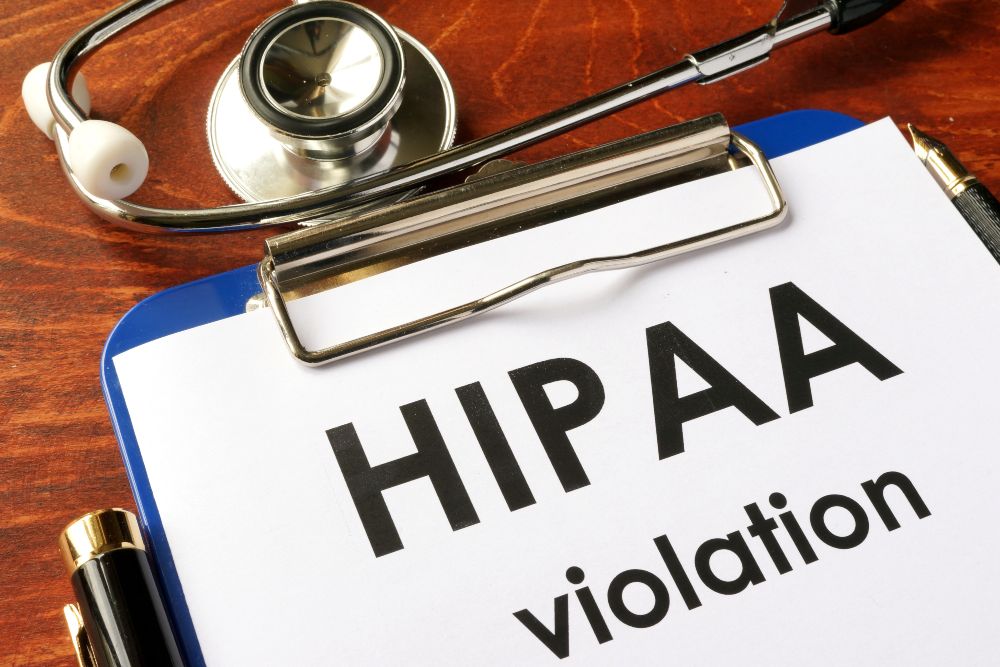
By: Michael Vincelette on December 13th, 2019
7 Reasons Healthcare Companies Face HIPAA Violations
HIPAA compliance can be intimidating. You probably hear about HIPAA violations all the time, where companies are forced to pay hefty penalties for failure to follow the rules.
Healthcare systems in particular frequently make the news for exposure of protected health information (PHI). Patent data requires different levels of security than other files, and HIPAA strictly reinforces the law to keep all forms of personal data private.
In this post, we’re here to address some of the most common HIPAA violations to help your business mitigate its risk. Here are seven reasons healthcare companies face HIPAA penalties:

1. Lack of Document Access Controls
According to HIPPA Journal, “snooping on healthcare records of family, friends, neighbors, co-workers, and celebrities is one of the most common HIPAA violations committed by employees.”
Some companies can be quite large, and when servers or files aren’t restricted, it becomes nearly impossible to tell which employees are viewing documents within your database.
What You Can Do: A document management software allows for user restrictions to prevent unauthorized internal access of PHI. Do you have proper limitations in place?
2. Lost or Stolen Devices
Devices often house an incredible array of information— and phones or computers are gold mines for bad actors. Devices that are forgotten in public spaces, left unattended or not properly secured can get into the wrong hands and result in a massive breach.
What You Can Do: HIPAA regulations often require patient data to be encrypted so that even if stolen or lost, the files cannot be easily hacked. Does your company utilize encryption or complex password protection? See our next point to learn more.

3. Lack of Proper Medical Record Protection
Nowadays, cyber criminals are crafty when it comes to hacking, and files that lack proper protection are easy targets. Digital files should be secured with difficult passwords, encryption and authentication methods.
Physical file storage containers that aren’t locked or efficiently secured can welcome unauthorized eyes as well. Fortunately, document imaging is a common standard that can help to reduce this risk.
What You Can Do: Digitize all patient records and protect these individual files by restricting authorization, setting passwords, encrypting, etc. Ensure that your servers have proper protection measures too, not just your documents.
4. Lack of Employee Training
Protection expands way beyond safeguarding your files themselves. Printers and other devices can be hacked and vital information stolen after downloading an infected file. Because of this, it’s pertinent to educate your employees on proper security practices for keeping your data safe.
For many companies, employee HIPAA training isn’t simply a recommendation: it’s a requirement by law. That means your team needs to be knowledgeable on policies and procedures to keep protected patient information private.
What You Can Do: Educate your team on HIPAA regulations and proper cybersecurity around phishing email scams, infected downloads, etc.
5. Improper Disposal of Records/Devices
If a computer dies, it’s easier to stick it in the trash or recycle it without concern for the contents that may remain on its internal drives. Resourceful bad actors can take this discarded device and extract patient information if not properly cleared— inadvertently causing a HIPAA violation.
What You Can Do: Have a professional clear or properly dispose of your old devices to guarantee important data isn’t recovered.

6. Skipping the Risk Analysis
A proper risk analysis will take an organizational-wide look at the company’s vulnerabilities to help prevent bad actors from stealing patient information or from the occurrence of unfavorable situations.
Certain companies are required to perform routine risk analyses, and failure to do so can result in costly HIPAA penalties. Not only will the business face financial loss from the HIPAA violation itself, but they may lose even more in a ransomware attack or in reputation recovery.
What You Can Do: Schedule a risk analysis at least twice a year by a reputable IT company to access your vulnerabilities and empower better decisions about your security.
7. Lack of Risk Management Process
Once a risk analysis is performed, that’s not the end of the road. The company then needs to take the information discovered in the analysis and develop a formal process for addressing the vulnerabilities. Each risk can either be mitigated or left unaddressed based on the projected impact.
Just because a company conducted a risk analysis, it doesn’t mean they’re clear of HIPAA violations. Should a breach happen, the company may be penalized for neglect, for having well-known what they could have done to decrease their risk yet choosing to ignore it.
What You Can Do: After conducting a risk analysis, perform a business impact analysis to prioritize the value of each step for reducing your vulnerabilities. For instance, you may decide one risk needs immediate attention,while another may be able to wait until after the first is addressed.
Don't Navigate the HIPAA Maze Alone
While these insights are a great starting point for navigating through the HIPAA maze, these aren’t all of the ways your company could face a violation. There are a number of other reasons companies are slapped with penalties, including third-party disclosure of patient data, hiding breaches after the 60-day notification deadline and more.
Here at Integrity Systems & Solutions, we’re aware of all the ways your company could be at risk. We specialize in helping medical and dental companies— and we’re here to keep you protected.
Learn more about our HIPAA compliance services and give us a call at (866) 446-8797 to start improving your security today.




